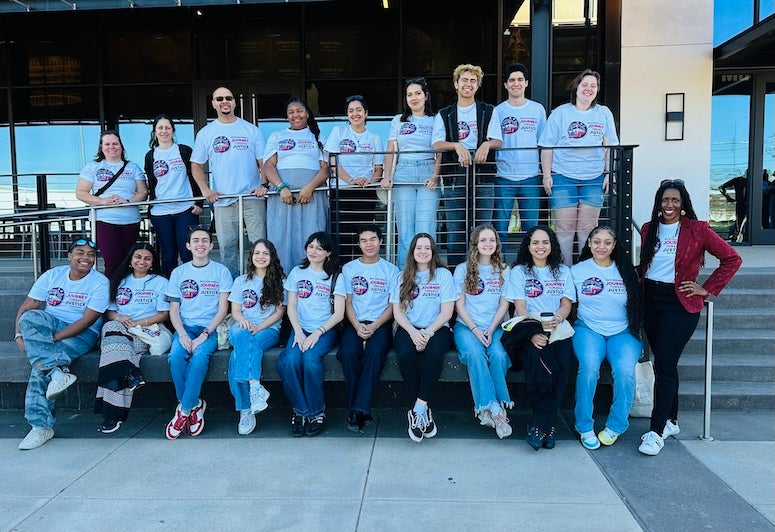While many students spent this year’s spring break relaxing or traveling, a cohort of Rice University undergraduates boarded a bus bound for Alabama — not for vacation, but for a deeper understanding of America’s legacy of racial justice.

As part of Journey Towards Justice, a sociology course taught by Elizabeth Hordge-Freeman, students spent five days visiting three cities in Alabama — Birmingham, Selma and Montgomery — to engage firsthand with the history of the civil rights movement. The course, jointly offered by the Department of Sociology and the Center for African and African American Studies, combines traditional classroom instruction with immersive, on-the-ground experiences that challenge students to engage emotionally, intellectually and historically.
“This wasn’t just a five-day field trip,” said Hordge-Freeman, Associate Professor in Sociology and Center for African and African American Studies. “Students were enrolled in a full course. They spent weeks preparing — reading, analyzing, discussing — so by the time we got to Alabama, they were ready to engage emotionally, intellectually and historically.”
For junior English major Sam Peltrau, the trip was much more than an academic endeavor.
“I’ve always loved learning about the civil rights movement, but this made it personal,” Peltrau said. “It was emotional in surprising ways. I was in tears at the Legacy Museum.”
The group’s itinerary included visits to Bethel Baptist Church, Edmund Pettus Bridge, Southern Poverty Law Center and the Equal Justice Initiative’s Legacy Museum and National Memorial for Peace and Justice. At each stop, students were encouraged to reflect in real time through guided discussions, daily journaling and healing circles led by a clinical social worker, Byron Parker from Texas Southern University who joined the trip as a support resource. Jaleh Jalili, assistant professor of sociology, also joined the group and made significant contributions as an expert on social movements.
Hordge-Freeman said those emotional layers were intentional. “There’s a difference between reading about the movement and walking the same streets as those who fought for justice,” she said. “This course is not just a look back at history — it’s a call to action.”
Alysa Bijl-Spiro, a junior studying philosophy and English with a minor in politics, law and social thought, said the experience helped her connect theoretical classroom learning with lived history in a visceral way.
“We studied these concepts for six to eight weeks, and then we got to see where they actually came from,” Bijl-Spiro said. “It was a full-circle moment.”
She said one of the most powerful takeaways was thinking critically about how history is framed and presented.
“We visited a variety of museums, and some chose to present the facts in a more palatable way, while others were raw and direct,” Bijl-Spiro said. “As a class, we talked about what those choices mean and what responsibility we have as scholars to present history as authentically as possible.”
The course was supported by the Frances Anne Moody-Dahlberg Gateway Program, the Center for Civic Leadership and the Center for Engaged Research and Collaborative Learning. It is part of a broader initiative supported by the Moody Gateway Program’s Faculty-Led Immersion Programs (FLiPs), which invite faculty to design community-engaged learning experiences that take students beyond the traditional classroom in alignment with the university’s strategic plan.

The program provides financial support along with logistical assistance from the dean’s office in the School of Social Sciences, allowing faculty to focus on course content while ensuring a seamless experience for students. Abbey Godley, assistant dean for student programs, coordinated essential logistics and provided invaluable on-the-ground support throughout the trip, Hordge-Freeman said, reinforcing how FLiPs can empower faculty to deliver immersive and transformative educational experiences. Hordge-Freeman said she hopes Journey Towards Justice becomes a model for other interdisciplinary, immersive courses at the university.
“I have friends at other schools who would never get an opportunity like this,” Peltrau said. “To approach the civil rights movement this way, up close and personal, and not have to worry about paying for it? I’m just so grateful. And now that we’ve had this opportunity, we can educate others on the civil rights movement and about our nation.”

